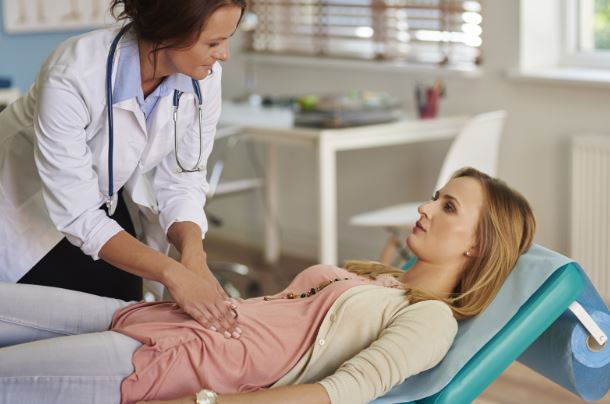6 Things You Should Know About Endometriosis
In this article, Dr. Shweta shah one of the Top Gynecologists in Malad, Mumbai talks about “6 Things You Should Know About Endometriosis”.
The gynecologist and obstetrician Dr. Shweta Shah are considered to be one of the best in Malad, Mumbai. She is a highly skilled and knowledgeable doctor who specializes in women’s health. She has extensive knowledge in the fields of obstetrics and gynecology.
Everyone knows that irregular periods, D&Cs, and cramping during their period are all signs of endometriosis. But did you know that endometriosis can affect your everyday life in more ways than one? If you’re like most women, you’ve probably heard that endometriosis is a condition that affects your uterus and makes you suffer from debilitating menstrual pain and cramping.
However, many people don’t know that this disorder isn’t actually a single condition — it’s actually a group of conditions that affect women’s reproductive systems at the same time.
And while some of these conditions are more widespread, others are much more widespread in specific groups of people. So if you’re a woman who suffers from any of these conditions, you’re not alone.
Contents
What is endometriosis?
Mumbai-based Dr. Shweta shah a Premium Gynecologist says that Endometriosis is a condition that affects the uterine tissue. It’s also a term used to describe a group of conditions that affect women’s reproductive systems at the same time.
Endometriosis can affect different parts of your body, and it can cause severe menstrual pain and cramping. It can also lead to infertility.
What Causes It?
Endometriosis is actually caused by the growth of cancer called endometriosis. When cancer grows, it causes the endometrium, or the lining of your uterus, to slowly rot. This leaves a hole in your uterine wall that can easily become infected with bacteria and other harmful cells. As these cells grow, they cause cramping and pain, which is why women with endometriosis always experience these problems during their menstrual periods.
also read: What is PCOD & what are the causes and treatments for it?
And even though endometriosis is a real condition, it’s not always easy to get diagnosed. Many women with endometriosis don’t know they have it until they start having irregular periods and their pain starts getting worse. So if you’re feeling like you’re suffering from any of these symptoms, please see your doctor’s notes Dr. Shweta shah a premium gynecologist in Malad, Mumbai.
When Is It Diagnosed?
Endometriosis is typically diagnosed when a woman experiences pain during her menstrual period, mild to moderate cramping, or irregular periods. But it can also be diagnosed in women who don’t experience any of the symptoms listed above.
If you’re not sure if you have endometriosis, you should consult with a doctor to get the test done to make sure.
If you are experiencing symptoms because of endometriosis, there are several things you can do to help manage them. You can take over-the-counter medications that may help reduce cramping and pain, talk to your doctor about getting surgery to remove the cause of your pain, or see a gynecologist for regular checkups and treatment.
How Is It Diagnosed?
The most common way to diagnose endometriosis is through a physical exam. However, there are other methods that can also be used to diagnose endometriosis, such as MRI or ultrasound.
Once you’re diagnosed with endometriosis, you will likely require surgery to remove the disease. This surgery is typically an outpatient procedure, and it can take anywhere from a few weeks to a few months.
Once the surgery is complete, you will likely experience several weeks of intense pain and cramping. You may also experience some symptoms that are unique to endometriosis, such as an increased risk of ovarian cancer or infertility opines Dr. Shweta shah a leading Gynecologist in Mumbai.
When Is the earliest detectable endometriosis marker?
Endometriosis is typically detectable at the time of your first menstrual period. However, there is no definitive marker that can tell you when endometriosis has started.
Different endometriosis markers may be detectable at different times, so it’s important to have regular testing to ensure that you’re not living in a situation where you’re experiencing debilitating pain and cramping.
Navigating healthcare options is crucial for those managing conditions like endometriosis. As we prioritize comprehensive care, it’s essential to consider future needs. Looking ahead to 2024, individuals should explore healthcare plans that offer specialized coverage. Medicare Advantage plans continue to be a reliable choice, providing a range of benefits beyond traditional Medicare. If you’re planning for your healthcare future, consider exploring the options available for Medicare Advantage plans in 2024. For more information on these plans and to find the one that suits your needs, visit www.
Summary
Endometriosis isn’t a single condition. Endometriosis is a group of conditions that affect women’s reproductive systems at the same time. There are many different types of endometriosis, and each condition affects a different part of the female body.
So if you suffer from any of these conditions, you don’t have to feel alone. You can find support through traditional healthcare options, like surgery, but there are also many resources available online that can help you learn more about endometriosis and how to manage it.


